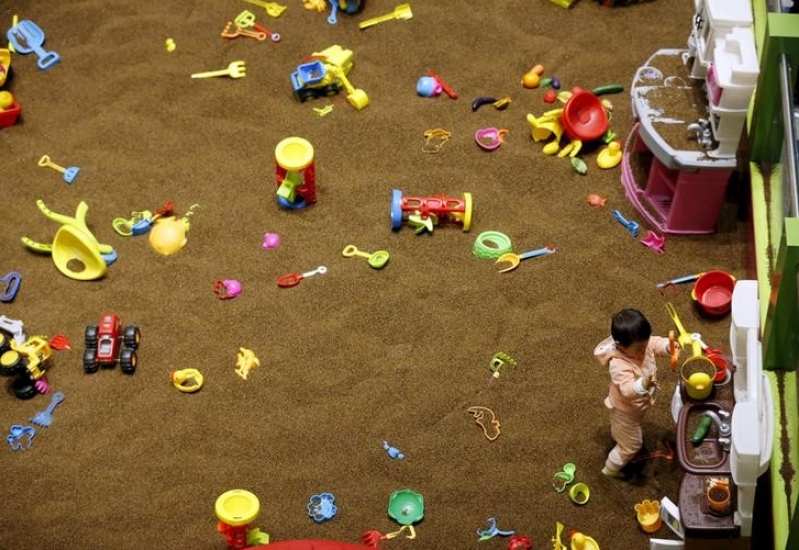
China's adoption of a two-child policy is expected to boost the country's economic growth rate by about 0.5 of a percentage point, stemming from a rise in the size of its work force, a senior Chinese official said on Tuesday.
Wang Pei'an, vice minister of the National Health and Family Planning Commission, did not specify a time period for that growth target. Last week, President Xi Jinping said it is possible for the country to have annual economic growth of around 7 percent over the next five years.
"In the long-term, the positive effect on economic growth will be significant," Wang told a news briefing.
Wang's economic forecast came nearly two weeks after the ruling Chinese Communist Party announced it would further relax the long-standing and controversial "one-child policy". But critics say the policy change comes too late and will not have the desired effect.
The adoption of a two-child policy will boost consumer demand for housing, education andhealth and daily necessities, and increase employment in the short term, Wang said.
The one-child policy was introduced in the late 1970s to prevent population growth spiraling out of control, but is now regarded as outdated and responsible for shrinking China's labor pool. It has also led to the aging of China's society, a phenomenon usually restricted to industrialized nations.
By around the middle of this century, one in every three Chinese is forecast to be over 60, with a shrinking proportion of working adults to support them.
With the adoption of the two-child policy, China's labor force could rise by about more than 30 million and its aging population will be reduced by 2 percentage points by 2050, Wang said.
"The implementation of a comprehensive two-child policy will help to improve the population structure and promote the balanced development of the population," Wang said.
According to a government survey, most Chinese people want to have two children, Wang said. Married couples within an average age range between 20-44 years old said they would like 1.93 children, he said.
Wang said that China would not abandon its family planning restrictions, adding that the country struggled to provided the people with food, clothing and housing due to the rapid population growth in the 1970s and 1980s.
"A large population is China's basic national condition so we must adhere to the basic state policy of family planning," he said.






